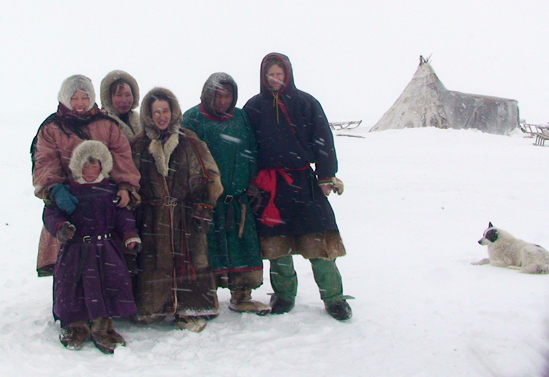Arctic Anthropologists to Study Oral History of Empires
31.5.2011 15:57
The anthropology research team of the Arctic Centre in Rovaniemi headed by Florian Stammler was successful with an application to the Academy of Finland for a major research international project. The research council for society and culture awarded 600 000 euros for a project called Orhelia.
The acronym Orhelia translates as “Oral History of
Empires by Elders in the Arctic” with the subtitle “A comparative
history of the relations between states / Empires and their subjects in
their northernmost peripheries”. Preliminary research has already
started and a short experience report from the first field trip is
available at the Arctic Anthropology Blog.
“This is a big success for our
anthropology research team and we are keen to start working with our
research partners in the fall. The team spent a lot of time and sweat
for the application, but had not expected such a positive result given
the tough competition and strict international review process by five
independent experts”, says project coordinator Florian Stammler.
The
Research Council for Society and Culture at the Academy of Finland
funded in this call tow projects from Northern Finland: the Orhelia
project of the anthropology research team of the Arctic Centre and one
project from the University of Oulu. All the other 48 projects were
funded in the Southern Finland.
“We will vigorously hold up the ‘northern flag’ in our field”, Stammler promises.
From idea to a research project

Orhelia researchers Florian Stammler (1st right) and Roza Laptander (1st
left) on their preliminary field trip to the Yamal Peninsula, Western
Siberia, in April 2011 with the Vengo family.
Florian
Stammler says that the idea for the Orhelia was originally circumpolar
and for all residents in the Arctic, not just indigenous. For this
application it was restricted to research with four groups, namely the
Skolt Saami, Kola Saami, European Nentsy, and Siberian Nentsy.
The
Orhelia project develops a comparative history of relations between
remote people and states in the eyes of Arctic indigenous elders, by
using the method of life history analysis and oral history fieldwork
combined with anthropological participant observation. Doing so, the
project will also contribute to preserve incorporeal cultural heritage
among Uralic speaking northern minorities of Europe and study the
transmission of historical heritage between different generations.
All
four groups are united by their experience of the rise of the Soviet
Union, with consequences such as sedentarisation pressure, prosecution
of shamans, deportation, collectivisation of reindeer, World War Two,
resettlement, encroachment of pastures, land use change, demographic and
socio-economic marginalisation, and language change. Comparing the
experience of such events in elders’ lives, this project will contribute
to our theoretical understanding of state development in what is often
called the ‘northern periphery’. Thus while the project documents life
histories of Arctic elders, it goes further than that in its comparative
ambition to contribute to a theory of states as perceived on the ground
in their remotest outposts.
For a period of four years starting
from September 2011, the project will have 4 part-time researchers
working in close partnership with members of the four groups and
institutions for the study of incorporeal cultural heritage. The results
will include besides academic publications audiovisual material and
public outreach material. All research will be conducted and materials
handled observing the best possible combination of research ethics
guidelines by IASSA (International Arctic Social Sciences Association)
and the Principles and Best Practices by the Oral History Association.
For more information, please contact:
Senior researcher Florian Stammler, tel. +358 400 138 807, florian.stammler(at)ulapland.fi
www.arcticanthropology.org
|